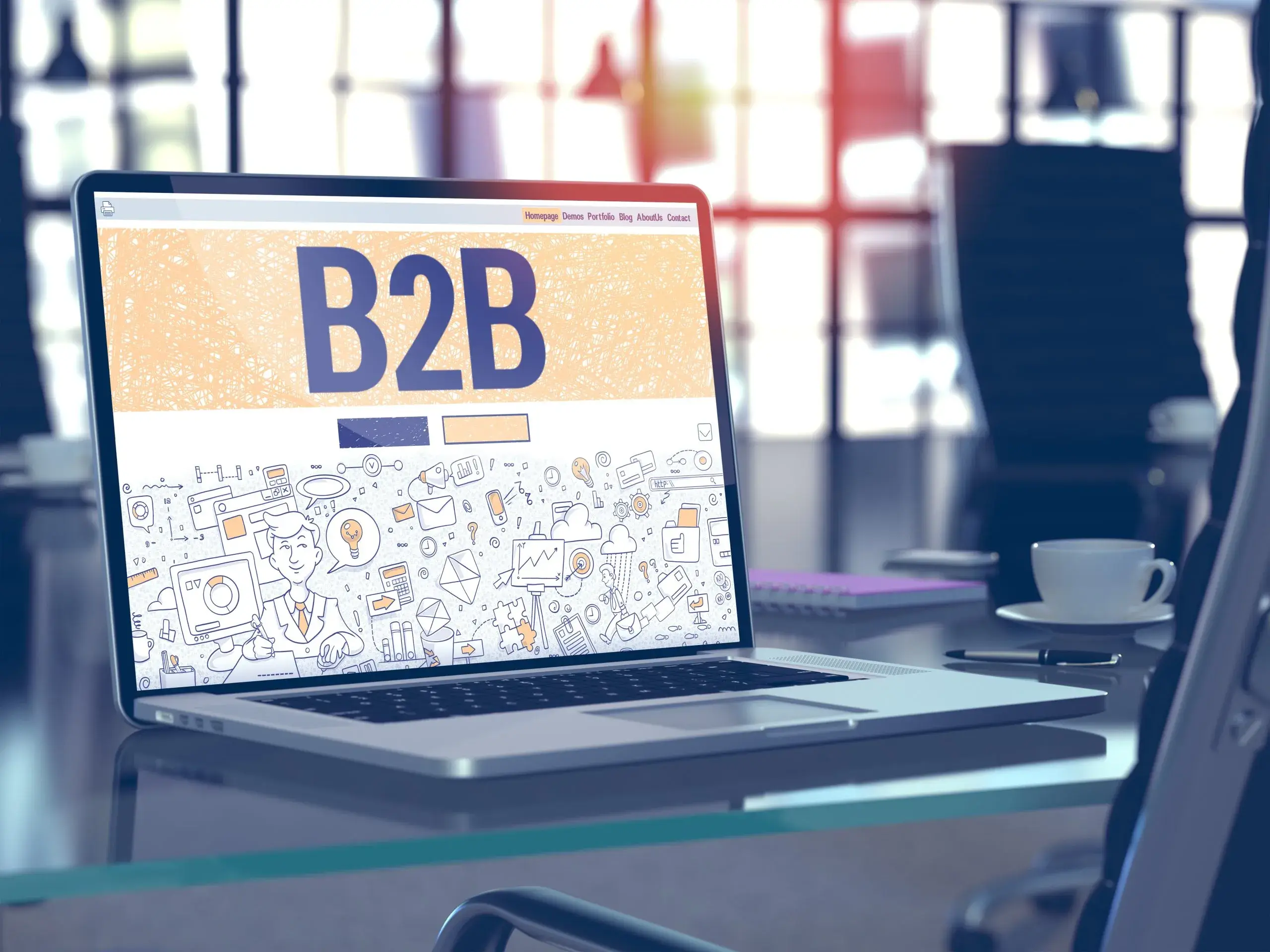Understanding the Basics: Lead Lists and Outsourced B2B Lead Generation
Lead Lists and Outsourced B2B Lead Generation are two distinct approaches to acquiring leads for your B2B business. To better understand the differences between the two, let’s explore the basics of each method.- Lead Lists: A lead list is a curated collection of contact information for potential leads in a specific industry or target market. These lists are often compiled by data providers who gather information from various sources, such as public records, business directories, and online platforms. Lead lists typically include details like company names, phone numbers, email addresses, and sometimes additional details such as job titles or company size.
- Outsourced B2B Lead Generation: Outsourced B2B lead generation involves partnering with a specialized agency or service provider to handle the entire lead generation process on your behalf. These agencies employ dedicated teams who utilize a range of strategies and tactics to identify and engage potential leads. This can include activities such as prospect research, cold calling, email campaigns, social media outreach, content marketing, and more. The goal of outsourced B2B lead generation is to generate high-quality leads that align with your target market and have a higher likelihood of conversion.
Buying Lead Lists: Pros and Cons
When considering lead acquisition strategies, buying lead lists is often one of the options businesses explore. However, like any approach, there are both advantages and disadvantages to buying lead lists. In this section, we will examine the pros and cons of this method in more detail.What is a Lead List?
Before diving into the pros and cons, it’s important to understand what exactly a lead list is. A lead list is a pre-compiled collection of contact information for potential leads in a specific industry or target market. These lists are typically sold by data providers who gather information from various sources and organize it into a database. The information provided in a lead list often includes company names, phone numbers, email addresses, and sometimes additional details such as job titles or company size.Benefits of Buying Lead Lists
- Time and Effort Saving: Buying lead lists can save businesses significant time and effort in lead generation. Instead of starting from scratch and manually searching for leads, businesses can access a ready-made list of potential prospects, allowing them to focus their resources on other important tasks.
- Cost-Effective: Compared to other lead generation strategies, buying lead lists can be a cost-effective option. The upfront cost of purchasing a lead list is often lower than investing in various lead generation activities, such as hiring a dedicated sales team or running extensive marketing campaigns.
- Broader Reach: Lead lists provide businesses with access to a wide range of potential leads that they may not have been able to identify on their own. This broader reach can expand the business’s market reach and potentially uncover new opportunities for growth.
- Quick Start: Buying lead lists offers a quick start to lead generation efforts. Once the list is obtained, businesses can immediately begin reaching out to potential leads, accelerating the sales process and potentially generating faster results.
Potential Drawbacks of Buying Lead Lists
- Quality Concerns: One of the biggest challenges with buying lead lists is ensuring the quality and accuracy of the data provided. Some lead lists may contain outdated or inaccurate information, leading to wasted time and effort in reaching out to leads that are no longer relevant.
- Limited Targeting: While lead lists provide a broad reach, they often lack the level of targeting and customization that businesses may desire. The information provided in a lead list is typically generic and may not align perfectly with the business’s ideal customer profile.
- Competition and Oversaturation: Lead lists are often sold to multiple businesses, meaning that the leads on the list may have already received similar offers from competitors. This can result in increased competition and oversaturation, making it more challenging to stand out and convert leads into customers.
- Lack of Relationship Building: Buying lead lists does not allow for the development of a relationship with potential leads from the start. Building trust and rapport with leads is often crucial in the B2B sales process, and this may be more challenging when using purchased lead lists.
Outsourced B2B Lead Generation: Pros and Cons
Outsourced B2B lead generation is an alternative approach to acquiring leads, whereby businesses partner with specialized agencies or service providers to handle the entire lead generation process. In this section, we will explore the pros and cons of outsourcing B2B lead generation.
What is Outsourced B2B Lead Generation?
Outsourced B2B lead generation involves delegating the lead generation process to external experts who specialize in identifying and engaging potential leads. These agencies or service providers typically employ dedicated teams with expertise in various lead generation strategies, such as prospect research, cold calling, email campaigns, social media outreach, content marketing, and more. The goal of outsourcing B2B lead generation is to generate high-quality leads that align with the business’s target market and have a higher likelihood of conversion.Advantages of Outsourcing B2B Lead Generation
- Expertise and Specialization: Outsourcing B2B lead generation allows businesses to tap into the expertise and specialized knowledge of professionals who are well-versed in lead generation strategies. These agencies have extensive experience in identifying and engaging potential leads, maximizing the chances of generating high-quality leads.
- Targeted and Customized Approach: Outsourced B2B lead generation agencies can tailor their strategies to align with the business’s specific target market and ideal customer profile. This level of customization ensures that the leads generated are more likely to be a good fit for the business’s products or services.
- Scalability and Flexibility: Outsourcing B2B lead generation offers businesses scalability and flexibility. Instead of being limited to a fixed number of leads from a purchased list, businesses can adjust the volume of leads generated based on their current needs and resources. This allows for a more adaptable approach to lead generation.
- Time and Resource Saving: By outsourcing lead generation, businesses can save valuable time and resources that would have been spent on hiring and training an in-house team. The external agency takes care of the entire lead generation process, allowing the business to focus on other core activities.
Potential Downsides of Outsourcing B2B Lead Generation
- Cost Considerations: Outsourced B2B lead generation comes with a cost, and businesses should carefully evaluate their budget and ROI expectations before committing to an agency. The cost may vary depending on factors such as the scope of services, the complexity of the target market, and the level of customization required.
- Lack of Internal Control: Outsourcing lead generation means relinquishing some level of control over the process. Businesses must trust the outsourced agency to represent their brand and handle leads in a manner that aligns with their values and objectives.
- Integration Challenges: Integrating outsourced lead generation with other internal processes and systems can sometimes pose challenges. It requires seamless coordination and communication between the business and the agency to ensure a smooth flow of leads into the sales pipeline.
- Dependency on External Providers: Outsourcing lead generation means relying on external providers for a critical aspect of the business’s growth. Businesses must carefully choose a reputable and reliable agency to minimize the risk of subpar results or disruptions in lead generation efforts.
Comparing Lead Lists and Outsourced B2B Lead Generation
When deciding between buying lead lists and outsourcing B2B lead generation, it is crucial to compare the two approaches across various key factors. In this section, we will examine and compare lead lists and outsourced B2B lead generation based on factors such as cost, quality of leads, time and effort, flexibility, and scalability.Cost Comparison
Lead Lists: Buying lead lists typically involves an upfront cost, which varies depending on factors such as the size of the list, the quality of the data, and the target market. While lead lists can be a more affordable option compared to other lead generation strategies, businesses should consider the potential return on investment (ROI) and the overall cost-effectiveness of the leads generated. Outsourced B2B Lead Generation: Outsourcing B2B lead generation comes with a cost as well, often in the form of a monthly retainer or a payment structure based on the number of leads generated. The cost of outsourcing can vary depending on factors such as the scope of services, the complexity of the target market, and the level of customization required. Businesses should carefully evaluate the cost versus the potential value and quality of the leads generated.Quality of Leads Comparison
Lead Lists: The quality of leads from bought lead lists can vary significantly. Some lists may contain outdated or inaccurate information, which can result in wasted time and effort. It is essential to thoroughly vet the data provider and consider factors such as the source of the data, the accuracy guarantees provided, and any customer reviews or testimonials. Outsourced B2B Lead Generation: Outsourced B2B lead generation agencies focus on generating high-quality leads that align with the business’s target market and ideal customer profile. These agencies employ various strategies and tactics to identify and engage potential leads, increasing the likelihood of generating leads that are more likely to convert. The expertise and specialization of the agency can contribute to the overall quality of the leads generated.Time and Effort Comparison
Lead Lists: Buying lead lists can save businesses time and effort in terms of initial lead identification. The pre-compiled list allows for immediate access to potential leads, eliminating the need for extensive research and data gathering. However, businesses will still need to invest time and effort in reaching out to and nurturing these leads to convert them into customers. Outsourced B2B Lead Generation: Outsourcing B2B lead generation frees up the business’s time and resources as the agency takes care of the entire lead generation process. Businesses can focus on other core activities while the agency handles lead identification, engagement, and nurturing. This can result in significant time and effort savings for the business.
Flexibility and Scalability Comparison
Lead Lists: Lead lists offer a fixed number of leads based on the purchased list. Businesses may face limitations in terms of scalability and flexibility, as they are confined to the leads provided in the list. Scaling up or down may require purchasing additional lists or seeking other lead generation strategies.
Outsourced B2B Lead Generation: Outsourced B2B lead generation offers businesses greater flexibility and scalability. The agency can adjust the volume of leads generated based on the business’s current needs and resources. This allows for a more adaptable approach to lead generation, accommodating changes in demand and business growth.
By comparing lead lists and outsourced B2B lead generation across these key factors, businesses can gain valuable insights to make an informed decision. In the next section, we will explore real-world case studies and examples to further illustrate the effectiveness of both approaches.
Case Studies and Real-World Examples
To provide a deeper understanding of the effectiveness of buying lead lists and outsourcing B2B lead generation, let’s explore real-world case studies and examples that highlight the outcomes and experiences of businesses using these approaches.
Success Stories with Buying Lead Lists
- Company XYZ: Company XYZ, a software-as-a-service (SaaS) provider, decided to purchase a lead list targeting small and medium-sized businesses in the technology sector. By leveraging the purchased list, they were able to quickly reach a large number of potential leads and significantly expand their customer base. However, they encountered challenges with the quality of the data, as some contacts had outdated information, leading to lower conversion rates. Despite this, Company XYZ was able to generate a substantial number of qualified leads and achieve a positive return on their investment.
- Company ABC: Company ABC, a marketing agency, purchased a lead list focused on healthcare professionals in specific geographic regions. By utilizing this list, they were able to identify and connect with a wide range of potential clients in the healthcare industry. The targeted approach allowed them to tailor their marketing messages and increase the effectiveness of their outreach efforts. The purchased lead list played a significant role in helping Company ABC secure new clients and expand their service offering within the healthcare sector.
Success Stories with Outsourced B2B Lead Generation
- Company DEF: Company DEF, a B2B consulting firm, decided to outsource their lead generation efforts to a specialized agency. The agency utilized a combination of prospect research, personalized email campaigns, and targeted social media outreach to identify and engage potential leads within the industry. Through this partnership, Company DEF was able to generate a consistent stream of high-quality leads that aligned with their ideal customer profile. The outsourced B2B lead generation approach allowed Company DEF to focus on nurturing these leads and converting them into long-term clients, resulting in substantial business growth.
- Company GHI: Company GHI, a manufacturing company, struggled with limited resources and expertise in lead generation. By outsourcing their lead generation efforts to a specialized agency, they were able to leverage the agency’s knowledge and experience in the manufacturing industry. The agency implemented a comprehensive lead generation strategy, including targeted content marketing, trade show attendance, and personalized outreach. This approach resulted in a significant increase in qualified leads and ultimately contributed to Company GHI’s expansion into new markets and increased revenue.
Comparative Case Studies
- Company JKL: Company JKL, a technology solutions provider, conducted a comparative analysis of buying lead lists versus outsourcing B2B lead generation. They initially purchased a lead list to kickstart their lead generation efforts. While they were able to quickly reach a large number of potential leads, they found the quality of the leads to be inconsistent. As a result, they decided to partner with an outsourced B2B lead generation agency. The agency’s expertise and targeted approach led to a higher conversion rate and a more efficient use of resources. This comparative case study highlighted the advantages of outsourcing B2B lead generation for Company JKL.
- Company MNO: Company MNO, a professional services firm, opted to purchase a lead list initially, as it seemed like a cost-effective option. However, they faced challenges with the quality of the data and the limited targeting capabilities. Recognizing the need for a more tailored approach, they decided to outsource their lead generation efforts to a specialized agency. The agency’s expertise in the industry and their ability to generate highly targeted leads resulted in a significant increase in qualified leads and ultimately led to the acquisition of high-value clients for Company MNO.
By examining these case studies and real-world examples, businesses can gain insights into the potential outcomes and experiences associated with buying lead lists and outsourcing B2B lead generation. This information can assist in making an informed decision that aligns with their specific goals and resources. Contact Dream Data Services for information on buying lead lists today!
